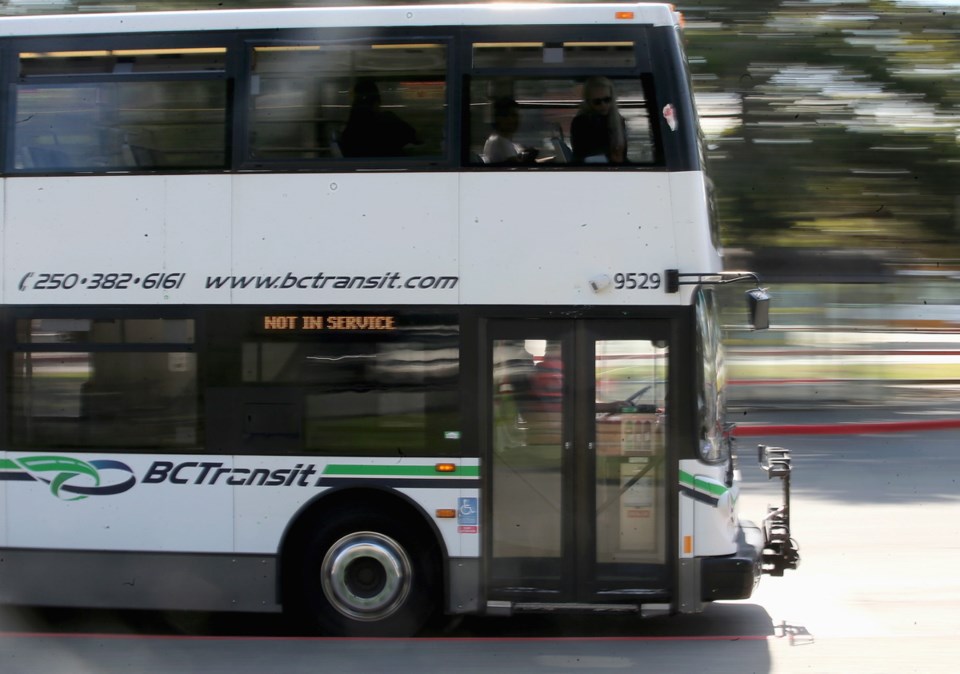B.C. Transit quickly filled four advertised trip cancellations this morning on the heels of 25 cancellations on Wednesday as the corporation grapples with an aging fleet in a busy month of increased ridership.
“We were able to get the buses ready to go for service this morning,” said B.C. Transit spokesman Jonathon Dyck. “We recognize it is a challenge for customers and we apologize to them for this.”
B.C. Transit advised customers at 6:27 a.m. that it would not operate the No. 4 UVic at 8:22 a.m., No. 14 UVic at 7:31 a.m., and two No. 50 Downtown buses from Langford Exchange at 7:15 and 7:56 a.m.
A day earlier, B.C. Transit apologized to riders for more than two dozen cancellations and said it appreciated their patience “while we work through these challenges.”
B.C. Transit has about 18 buses out of service. There are 304 buses in the fleet.
“We recognize it’s not ideal to cancel trips,” Dyck said. “We are doing everything we can to mitigate the impact to our customers.”
B.C. Transit urged customers to check its website for advisories and schedules.
“It’s been a busy month for transit and we’ve seen ridership increase across the board,” Dyck said. “We are very happy people are choosing to take transit. We want to be reliable and we work hard to be arriving on time. That’s what we want to do for our customers - both future and current customers.”
B.C. Transit’s buses are, on average, 12 years old, near the ideal maximum lifetime age depending on the type of bus.
“We have an aging fleet that sometimes needs more care than a newer fleet does,” Dyck said.
“We’ve had a couple of situations over the last few weeks where we have more buses down than what we would have expected,” he said..”
Regular maintenance is performed on the buses and the buses are inspected regularly by drivers before the start of the day.
Repairs range from minor ones such as changing a headlight, to major ones involving body work or engine trouble, for example.
“Depending on the issue, it may mean the bus is unavailable for service,” Dyck said.
In recent weeks, more buses have been out of service than usual, he said. “We haven’t been able to put all our buses on the road but I can tell you our team is working on that and that they are trying to find solutions to do so.”
B.C. Transit will see the arrival of new compressed natural gas-powered buses in January.
Throughout 2020, more replacement buses - including double deckers - will also arrive. About 10 electric buses are set to arrive in 2021.
“Our team is working hard on this and looking for options to be able to address the challenges,” Dyck said.



